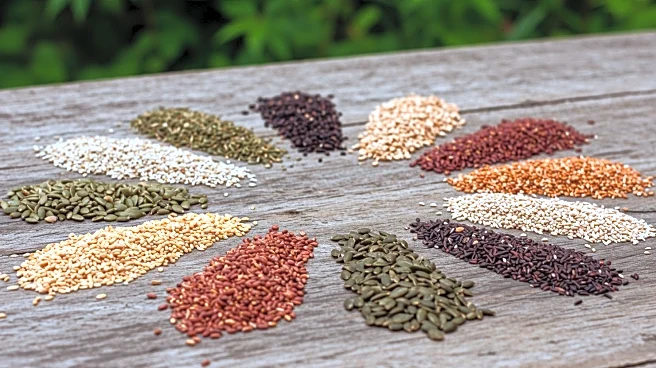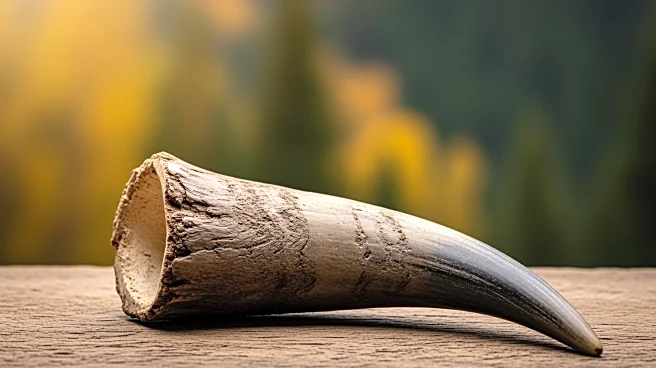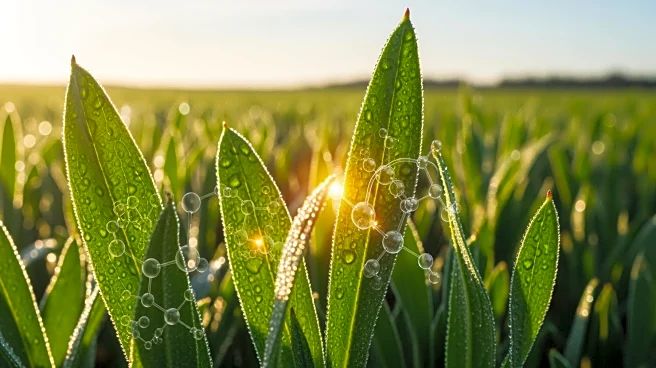What's Happening?
In northeastern Syria, farmers are working to revive traditional seed exchange practices amidst environmental and political challenges. Najah Hussein Abroush, a farmer in Boraz, is among those affected by the degradation of soil due to years of civil war and centralized agricultural policies. Local seed varieties have nearly disappeared, forcing farmers to rely on imported seeds that have disrupted traditional farming methods. The region faces severe drought, salinized groundwater, and failing crops, exacerbated by Turkish airstrikes that have damaged infrastructure like the Tishrin Dam. Despite these challenges, initiatives such as reforestation nurseries managed by the Autonomous Administration of North and East Syria are taking root, aiming to restore the environment and local agriculture.
Why It's Important?
The revival of seed exchange practices in Syria is crucial for restoring agricultural autonomy and resilience in a region heavily impacted by war and environmental degradation. Local seed varieties are better adapted to the harsh conditions, requiring less water and fertilizers, which is vital in the face of ongoing droughts and soil degradation. The efforts to reclaim traditional farming methods not only aim to improve food security but also to heal the land and support local communities. These initiatives could serve as a model for other regions facing similar challenges, highlighting the importance of sustainable agriculture and environmental restoration.
What's Next?
The ongoing efforts to restore traditional agriculture in Syria may lead to increased collaboration among local farmers and authorities to further develop sustainable practices. As the region continues to face political and environmental challenges, the success of these initiatives could influence policy changes and encourage international support for similar projects. The focus on phytoremediation and reforestation may also expand, offering long-term solutions to soil contamination and environmental degradation.
Beyond the Headlines
The revival of seed exchange practices in Syria underscores the broader implications of agricultural autonomy and resilience in conflict-affected regions. It highlights the ethical and cultural significance of preserving traditional farming methods and local biodiversity. These efforts may contribute to a shift towards more sustainable and community-driven agricultural models globally, emphasizing the importance of environmental stewardship and local empowerment.









